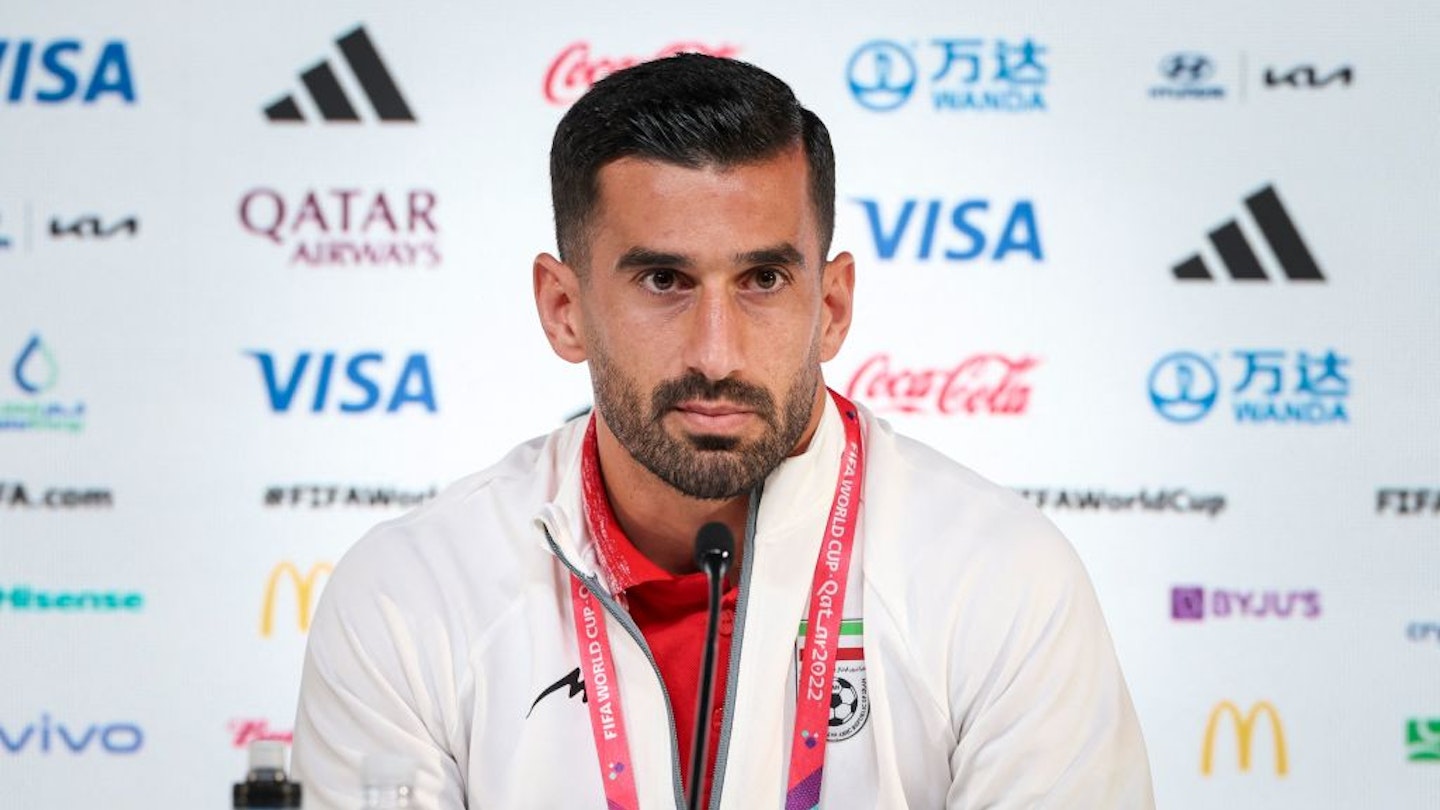On this, the first full day of matches in the FIFA Men’s World Cup 2022 tournament, England play Iran in the first match of the day.
Pictures from yesterday’s Ecuador vs Qatar standalone game showed thousands of empty seats in the stadium as host nation Qatar’s fate was sealed before half time, but today’s matches are set to be substantially more spirited as swathes of British fans descend on the stadium, despitewidespread criticism of Qatar’s poor human rights record.
But it’s not just the host nation’s abuses of, in particular, LGBTQ+ rights that are under the global spotlight at the moment. Just across the Persian Gulf, our rivals home country is facing huge political upheaval as hundreds of thousands take to the street to protest the oppressive Islamic Regime. Two months after thekilling of Mahsa Amini in the custody of so-called ‘morality police’ after her arrest for wearing the compulsory hijab ‘incorrectly’, the countries much loved football team have been given a powerful platform on the world stage to speak out.
Speaking at a televised press conference ahead of their debut match against England, the team’s captain Ehsan Hajsafi spoke about the current crisis in his home country.
‘I would like to express my condolences to all of the bereaved families in Iran,’ he said. ‘They should know that we are with them, we support them and we sympathise with them.
‘We have to accept the conditions in our country are not right and our people are not happy. We are here but it does not mean we should not be their voice or we must not respect them.
‘Whatever we have is from them. We have to fight. We have to perform and score some goals to present the brave people of Iran with a result. I hope conditions change as to the expectations of the people.’
While he didn’t refer to the reported executions of dozens of protestors and the arrests of hundreds more specifically, many have taken to Twitter to commend him on the bravery of his statement, including former Labour leader Jeremy Corbyn, who said, ‘Such bravery from Iran’s Ehsan Hajsafi, using his platform to stand up for human rights.’
While not to detract from Hajsafi’s bravery, it’s notable that he’s unlikely to face any repercussions from commenting on politics in his country the way thousands of women, men and children on the street have in recent weeks. In the current fraught climate for women and minorities across the world, it’s worth remembering that a powerful man’s voice is still louder than the collective voices of thousands, and we need more men fighting alongside us in these battles.
